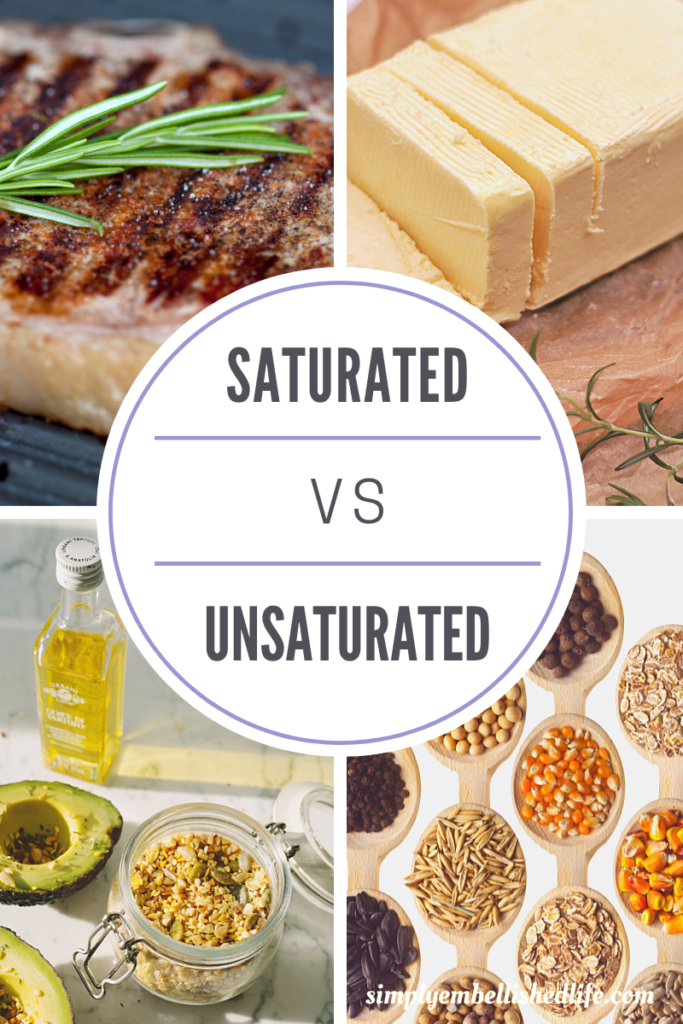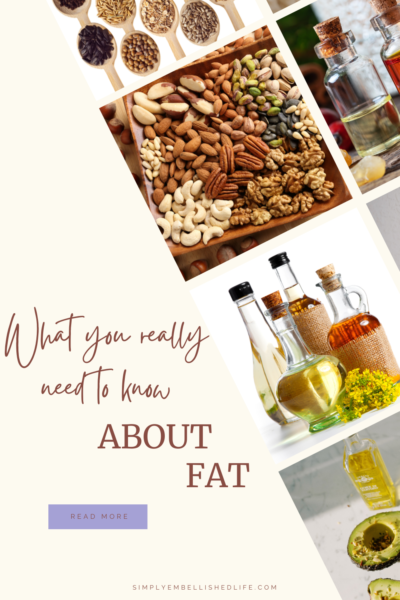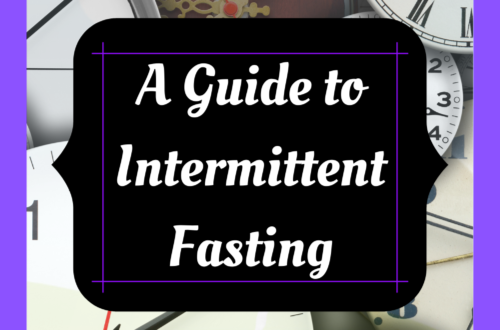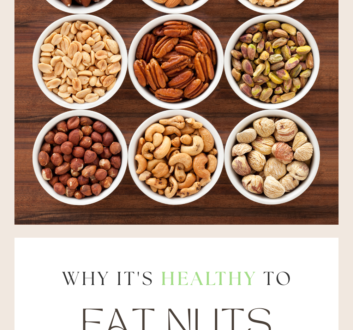Fat sounds bad, right? Most of us don’t want to be considered fat and many of us are trying to lose some weight that we’ve accumulated over the years. But, does that mean we should avoid eating it? Does fat make us fat?
Fat is a macronutrient just like protein and carbohydrates are. However, it does have more calories per gram than the other macronutrients. It has 9 calories per gram compared to 4 calories per gram, like protein and carbs. Our bodies require all of the macronutrients to function properly, so you can’t just avoid one of them and expect to live a healthy life.
The difference between types of fat
There are different types of fat found in foods and some are better for you than others. There’s saturated and unsaturated (polyunsaturated and monounsaturated). Those are what you’ll most likely see on food labels. There’s also the trans fats. Those you should try to avoid.

If you don’t know already, the saturated kind is the one you want to limit as much as possible, as it’s the one that has been associated with higher rates of stroke and heart disease. It has been known to increase the bad cholesterol levels (LDL’s). Saturated fats tend to be solids at room temperature, like butter, shortening, and fats from animal products.
Then you have the unsaturated fats. These are considered the “good” fats because they can help lower the risk of heart disease and lower cholesterol levels. You will find these types of fat in things like avocado, nuts, and vegetable oils, such as canola, olive, and peanut oils. As well as in vegetable oils, like safflower, sunflower, sesame, soybean, and corn oils.
So you should try to eat less saturated and eat more unsaturated fats instead. However, that doesn’t mean that you should load up on the unsaturated kinds either. They are part of a healthy diet, but eating an excess of anything can cause problems, such as weight gain. Fat isn’t necessarily making you fat, but overeating still can. Just like the other macronutrients, if you don’t use them for energy you’ll store them as fat.
What fats can do for you
As I mentioned before, we need fat in our diet to be healthy. So why is that? It’s a major source of energy. It helps you absorb vitamins A, D, E and K. Vitamins A, D, E, and K keep our brains, cells, hormones, tissues, hair, skin, and nails healthy.
So obviously, we don’t want to completely avoid fats in or diet. We just need to pay attention to the types of fats we’re consuming on a regular basis. By the way, a serving of fat is about the size of your thumb. You should be getting about that much at each meal combined with proteins and carbs to have a nutritionally balanced diet.
The problem with low fat diets
There was a time in the not so distant past when low fat diets became very popular, because people believed that it was the fat in their foods making them fat. However, when people go on diets they usually substitute what they used to eat with something else. That’s when “low fat” products started popping up everywhere. Anything from low fat salad dressing to low fat cookies. The problem with these alternatives though, is that when fat was reduced or taken out, it was replaced by sugar. They had to make it still taste good if they wanted people to buy it, right?
This lead to a couple of different problems. The first problem is that because they said low fat, people thought these products were healthy and could eat more of it. Eating more sugar than fat doesn’t help you lose weight even though it has less calories per gram. People will also tend to eat more because carbs, like sugar, don’t fill you up as fast or as long as fat does. This leads to the other problem, people were only paying attention to the fat content and not to the sugar.
It’s so easy to overeat sugar. It doesn’t fill you up quickly or for very long. It makes you crave it more, the more you eat of it. Plus, it’s easily stored as fat if you don’t use it for energy right away. As you can see, substituting low fat is not always the best solution. It can cause even more overeating and other health problems related to being overweight.
The take away
The healthiest way to eat is to not to completely avoid eating any major food group. Each macronutrient group is important to keep your body functioning properly. It’s all about the balance and the quality of the foods you consume. When you’re substituting one food for another, make sure it’s actually beneficial to do so. Look at food labels, not the advertisement part of the packaging. Or, even better, choose foods that don’t require labels and advertising. Choose whole and natural foods as often as possible.
Still not sure what the healthiest way to plan meals is and what to eat in order to live your healthiest life? Feel free to reach out to me for individual help.






